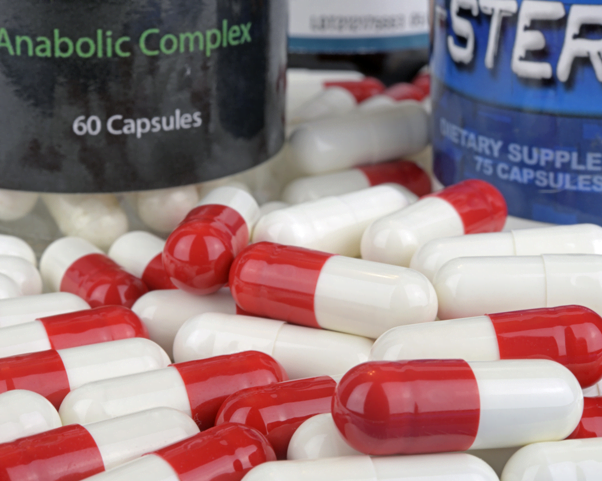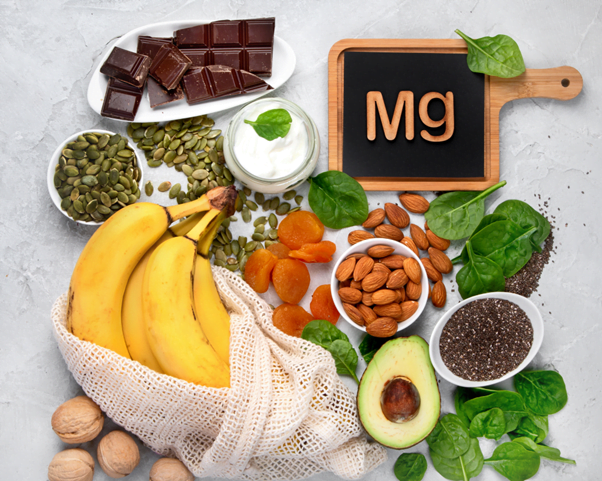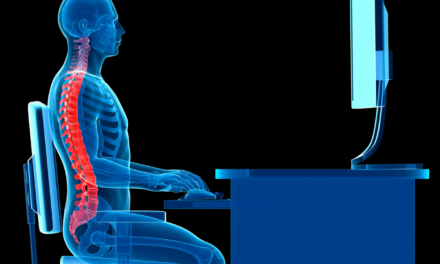Achieving anabolic cycle goals, such as muscle gain and strength improvement, requires a holistic approach. While exercise and training play a crucial role, the significance of diet should not be overlooked. In this article, we will explore how diet plays a fundamental role in achieving anabolic cycle goals and provide insights into designing a diet tailored to optimize muscle growth and recovery.
Understanding the Anabolic Cycle
The anabolic cycle refers to the period of muscle growth and repair following intense exercise. This cycle is vital for achieving desired fitness goals. During this phase, muscles recover from micro-tears caused by training, leading to increased strength and size. Understanding the importance of muscle growth and recovery sets the foundation for an effective anabolic cycle.
The Role of Diet in the Anabolic Cycle
 To maximize the benefits of the anabolic cycle, a well-balanced diet is essential. Here are the key components of the diet that impact anabolic processes:
To maximize the benefits of the anabolic cycle, a well-balanced diet is essential. Here are the key components of the diet that impact anabolic processes:
Caloric Surplus: Consuming more calories than expended creates a favourable environment for muscle growth. A slight caloric surplus provides the necessary energy for intense workouts and ensures sufficient nutrients for muscle repair and growth.
Macronutrients:
 Protein: As the building blocks of muscle tissue, protein is crucial for muscle repair and growth. Adequate protein intake supports muscle protein synthesis and enhances recovery. Carbohydrates: Serving as the primary fuel source, carbohydrates provide energy for workouts and replenish glycogen stores. They are essential for sustaining high-intensity training and optimizing performance.
Protein: As the building blocks of muscle tissue, protein is crucial for muscle repair and growth. Adequate protein intake supports muscle protein synthesis and enhances recovery. Carbohydrates: Serving as the primary fuel source, carbohydrates provide energy for workouts and replenish glycogen stores. They are essential for sustaining high-intensity training and optimizing performance.
Healthy fats are essential for hormone production, including anabolic hormones. They also aid in nutrient absorption and support overall health.
Micronutrients: In addition to macronutrients, micronutrients play a crucial role in muscle repair and recovery. Vitamins, minerals, and antioxidants support optimal bodily functions, reduce oxidative stress and combat inflammation.
Designing a Diet for Anabolic Cycle Goals
To design a diet that supports anabolic cycle goals, consider the following:
- Determining Calorie and Macronutrient Requirements: Assess your individual caloric and macronutrient needs to be based on factors such as age, weight, activity level, and goals. Aim for a moderate caloric surplus and distribute macronutrients appropriately.
- Meal Timing and Frequency: Timing your meals strategically and spreading them throughout the day can enhance muscle growth and recovery. Prioritize pre-and post-workout nutrition to provide adequate fuel and nutrients when they are needed the most.
- Pre- and Post-Workout Nutrition Strategies: Consume a balanced meal or snack before workouts to provide sustained energy. After training, prioritize protein and carbohydrates to kickstart muscle repair and glycogen replenishment.
- Importance of Hydration: Staying hydrated is crucial for optimal muscle function, nutrient absorption, and recovery. Drink water throughout the day and consider sports drinks during intense workouts to replenish electrolytes.
Foods to Include in an Anabolic Diet
- High-Quality Protein Sources: Incorporate lean meats, poultry, fish, dairy products, legumes, and plant-based protein sources like tofu and tempeh.
- Complex Carbohydrates: Choose whole grains, fruits, vegetables, and legumes to provide sustained energy and fibre.
- Healthy Fats: Include sources like avocados, nuts, seeds, olive oil, and fatty fish to support hormone production and overall health.
- Fiber-Rich Foods: opt for foods like fruits, vegetables, whole grains, and legumes to promote digestion and enhance nutrient absorption.
Supplementation in the Anabolic Cycle
Supplements can be beneficial in supporting anabolic goals, but they should not replace a balanced diet composed of whole foods. While individual needs may vary, here are some commonly used supplements that can complement an anabolic diet:
- Protein Powders: Whey protein, casein protein, or plant-based protein powders can be convenient sources of high-quality protein. They are easily digestible and can be consumed as post-workout shakes or added to meals for an extra protein boost.
- Creatine: Creatine is a popular supplement known for its ability to enhance strength and power output. It helps replenish ATP (adenosine triphosphate) stores, which are essential for explosive movements during workouts.
- Branched-Chain Amino Acids (BCAAs): BCAAs, such as leucine, isoleucine, and valine, are essential amino acids that promote muscle protein synthesis and reduce muscle protein breakdown. They can be consumed before or during workouts to support muscle recovery.
- Omega-3 Fatty Acids: Omega-3 supplements, typically derived from fish oil, are rich in essential fatty acids that support joint health, reduce inflammation, and aid in muscle recovery.
While supplements can offer benefits, it’s important to remember that they should complement a well-rounded diet rather than replace it. Consult with a healthcare professional or a registered dietitian before starting any supplementation regimen to ensure it aligns with your specific goals and needs.
Buy anabolic in the UK
The use of anabolic steroids without a prescription and medical supervision can be very harmful and dangerous to one’s health, leading to serious side effects and long-term health problems. Moreover, the sale and purchase of anabolic steroids without a prescription is illegal in the UK and can result in severe legal consequences.
Instead of resorting to illegal and risky means to improve your physical performance or appearance, it is essential to focus on healthy and sustainable lifestyle choices, such as maintaining a balanced and nutritious diet, regular exercise, and adequate rest and recovery. You may also want to consider seeking advice from certified healthcare professionals or fitness experts who can guide you towards safe and legal ways to achieve your health and fitness goals. Remember, your health and safety should always be a top priority, and there are no shortcuts to achieving long-lasting health and wellness.
Lifestyle Factors for Supporting the Anabolic Cycle
In addition to diet, certain lifestyle factors play a crucial role in optimising the anabolic cycle. Consider the following:
- Sufficient Sleep: Quality sleep is essential for muscle recovery and growth. Aim for 7-9 hours of uninterrupted sleep each night to support hormonal balance and overall well-being.
- Stress Management Techniques: High levels of stress can negatively impact hormone levels and muscle recovery. Engage in stress management practices such as meditation, deep breathing exercises, or engaging in hobbies to promote relaxation and optimise hormonal balance.
- Regular Exercise and Resistance Training: Consistent exercise, especially resistance training, stimulates muscle growth and strength development. Incorporate a well-structured workout routine that includes both compound and isolation exercises to target different muscle groups.
Conclusion
To achieve anabolic cycle goals, diet plays a critical role in maximizing muscle growth and recovery. A well-balanced diet with a caloric surplus, appropriate macronutrient distribution, and ample micronutrient intake is key. Additionally, prioritizing hydration, including specific foods in your diet, and considering supplementation can further support your goals. Remember, individualization is essential, so consult with professionals to create a personalized dietary plan that aligns with your needs. By prioritizing nutrition and adopting a holistic approach, you can optimize your anabolic cycle and achieve the desired results.
FAQs
Q1: What is the anabolic cycle?
A: The anabolic cycle refers to the period of muscle growth and repair that occurs after intense exercise. During this phase, muscles recover from micro-tears caused by training, leading to increased strength and size.
Q2: Why is diet important in achieving anabolic cycle goals?
A: Diet plays a crucial role in providing the necessary nutrients and energy for muscle growth and repair. It ensures that the body has an adequate caloric surplus, essential macronutrients (protein, carbohydrates, fats), and micronutrients (vitamins, minerals, antioxidants) needed for optimal muscle function and recovery.
Q3: How does a caloric surplus contribute to muscle growth?
A: Consuming more calories than expended creates a caloric surplus, which provides the energy necessary for intense workouts and supports muscle growth. It ensures that the body has enough resources to repair and build new muscle tissue.
Q4: What are the key macronutrients and their impact on the anabolic cycle?
A: The key macronutrients are protein, carbohydrates, and fats. Protein is essential for muscle repair and growth, while carbohydrates provide energy for workouts and replenish glycogen stores. Fats play a role in hormone production and overall health.
Q5: Why are micronutrients important in the anabolic cycle?
A: Micronutrients, such as vitamins, minerals, and antioxidants, are essential for optimal bodily functions, including muscle repair and recovery. They support cellular processes and help reduce oxidative stress and inflammation, promoting efficient muscle growth.
Q6: How do I design a diet for anabolic cycle goals?
A: To design a diet for anabolic cycle goals, determine your calorie and macronutrient requirements based on factors like age, weight, activity level, and goals. Consider meal timing and frequency, pre-and post-workout nutrition strategies, and the importance of hydration for muscle function and recovery.
Q7: What foods should I include in an anabolic diet?
A: An anabolic diet should include high-quality protein sources (lean meats, poultry, fish, legumes), complex carbohydrates (whole grains, fruits, vegetables), healthy fats (avocados, nuts, seeds), and fiber-rich foods (fruits, vegetables, whole grains) for digestion and nutrient absorption.
Q8: Are supplements necessary for the anabolic cycle?
A: While supplements can be beneficial in supporting anabolic cycle goals, they should not replace a balanced diet comprised of whole foods. Protein powders, creatine, BCAAs, and omega-3 fatty acids are commonly used supplements that can complement an anabolic diet. Consult with a healthcare professional before starting any supplementation regimen.
Q9: What lifestyle factors support the anabolic cycle?
A: Sufficient sleep is crucial for muscle recovery and growth, so aim for 7-9 hours of quality sleep each night. Implement stress management techniques, such as meditation or deep breathing exercises, to optimize hormonal balance. Regular exercise, especially resistance training, stimulates muscle growth and strength development.
Q10: How important is individualization in the anabolic cycle?
A: Individualization is key in the anabolic cycle, as everyone’s needs and goals are unique. It is recommended to seek guidance from professionals, such as registered dietitians or healthcare providers, to create a personalized dietary plan that aligns with your specific needs and optimizes your results.
Author

Dr. Aditya K. Sharma
I am Dr. Aditya Sharma, a dedicated urologist specializing in kidney transplants and advanced urological surgeries. My career is driven by a passion for delivering exceptional care and pioneering surgical techniques. Outside the operating room, I have a keen interest in studying the effects of anabolic steroids on bodybuilding, seeking to understand the fine line between enhancing performance and maintaining health.






